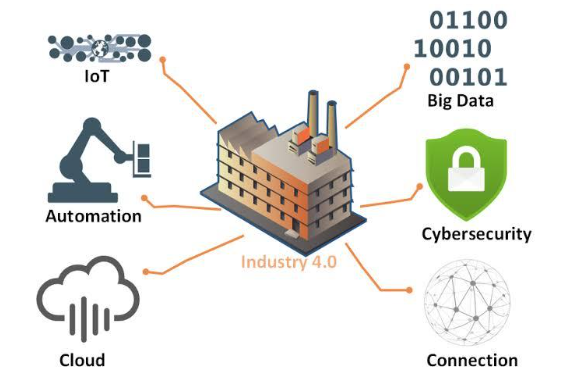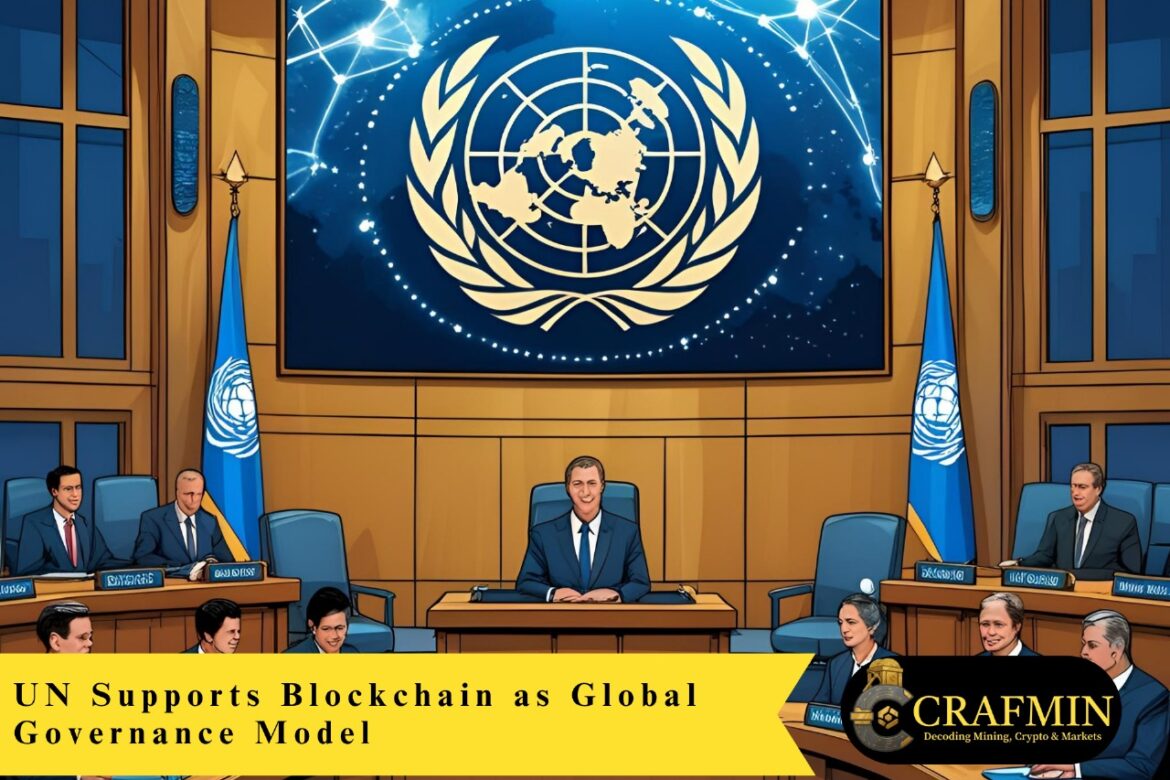The United Nations is making a historic step towards its digital governance system by embracing blockchain as a possible basis for open, decentralized, and inclusive global platforms.
This was achieved at a top-level forum called “Bridging the Future: Blockchain, Governance & Global Cooperation”. The forum was hosted by Bybit, Singapore’s Internet Governance Forum, and Blockchain for Good Alliance (BGA), and it united world policymakers, governance leaders, and technologists to exchange views on the future of blockchain in digital governance.
 UN Endorses Blockchain as a Foundation for Transparent Global Governance ( Image Source: MDPI)
UN Endorses Blockchain as a Foundation for Transparent Global Governance ( Image Source: MDPI)
Raising Trust and Global Cooperation
Guest of honor and opening presenter at the conference, Mauritius President Dharambeer Gokhool delivered a powerful message of collaborative and ethical applications of digital infrastructure. By way of illustration, he indicated, there is mounting public distrust of central institutions and cited such emerging technologies as blockchain as one means by which digital divides are overcome and institutional trust can be restored.
As Gokhool so well articulated, “Trust and cooperation must be the cornerstones of our digital future.” It was a call for tough thinking, internationally, about how digital systems are controlled, especially in the context of geopolitics and digital surveillance entering the arena, which is precipitating equity and sovereignty issues.
The forum was filled with anxieties that monopolies in technology, data scraping, and uninhibited algorithmic decision-making were eroding people’s faith. Blockchain was the answer as a means of adding fairness and audibility to the world’s systems.
Crypto Hype to Public Infrastructure
Blockchain for Good Alliance’s Glenn Tan addressed perhaps the most important subject of the forum: relocating blockchain from a speculative financial product to a public infrastructure.
“Blockchain is no longer hype, it’s constructing the hard infrastructure of international collaboration,” Tan said.
The conversation is now irretrievably past crypto speculation. It’s now about what blockchain can do to facilitate the delivery of services, safeguard civil rights, identity management, and cross-border cooperation, where trust in established government is lacking or under pressure.
Reimagining Cross-Border Governance
As world systems now confront unprecedented stresses, climate change to financial crises, governments are left to a frantic search for how to modernize. Conventional centralized technology is helpless to respond to international demands of openness, equity, and efficiency.
The forum demonstrated the possibility of decentralized systems being used as a world level of government, not directed by any single nation-state. From open procurement networks to identity networks and decentralized public record-keeping, real-world applications for blockchain technology are multiplying by orders of magnitude.
These innovations would give smaller nations an even playing field on which to make decisions globally. As members of open-source blockchain governance networks, developing nations and emerging economies can cooperate, and benefit from, crafting digital infrastructure beyond the control of tech behemoths.
The Road to Singapore: IGF 2025
Most consequential, maybe, was the pledge to have a follow-up: the Singapore Internet Governance Forum Conference in October 2025. The second meeting will seek to leverage momentum and provide practical policy advice on the use of nascent technology in governance.
Delegates declared that the Singapore conference would push blockchain-based solutions to new horizons of public accountability and service delivery. It will come with proposals for how to ensure civil liberties as well as how to ensure ethical standards for technologies, specifically in the case of AI, surveillance, and data handling.
The idea is to bridge talk with uptake, focusing on scalable solutions within reach of developed economies as well as developing economies.
⏳ | ‑ –
Tomorrow, the industry’s most influential voices in Banking, FinTech, and investment gather in Singapore to shape the next era of financial services.From… pic.twitter.com/0QQueWYjya
— IBS Intelligence (@IBSIntelligence) August 6, 2025
Beyond Technology: Ingraining Ethical Values
While the conference itself was technical in nature, none of the speakers shied away from discussing the philosophical foundations of blockchain. Decentralisation, openness, and inclusiveness were constant mantras, uttered not just as technical aspects, but as values that must go into the development of a fairer digital world.
Members asked that actual innovation lies not in the tools themselves, but rather in their management, their recipients, and if they construct or dismantle current disparities.
This ethics-centered policy struck a chord throughout the forum and echoed the UN’s own development objectives, i.e., concerning digital inclusion, equal access, and human rights.
A Shift in Global Digital Power
What is making the innovation timely is the realignment of international digital power. While the West and the East are in competition for AI, semiconductors, and cloud infrastructure, everyone’s aspiration towards mutual, middle-technology facilitative collaboration rather than domination is growing.
Blockchain governance models can facilitate that middle ground, especially to those countries who feel excluded by the domination of the big tech blocks.
The forum also indicated the growing influence of crypto-native institutions like Bybit. Gone are the days when these firms were viewed as speculative forces; nowadays, they are actively participating in high-order policy discussion and applying technology expertise to governance frameworks.
Their move indicates that future global governance would no longer be state-led but by multi-stakeholder actors like startups, NGOs, and civil society.
Why It Matters Now
United Nations acknowledgment of blockchain as a tool of government is symbolic and not something else. It signifies greater awareness that the digital age will see new rules, new infrastructure, and new ethics.
As technology remakes the way societies organize things from health care systems to elections, interest grows. Without open and transparent systems, institutions will continue to lose trust.
In selling blockchain as the stronghold of digital fairness and justice, the UN is actually proclaiming that it does not want to be the follower but the trendsetter in rebirthing global governance.
This could be the beginning of a new era-on which a decentralized design is no longer tolerated but cherished as a means of achieving this very equitable and equitable world.

